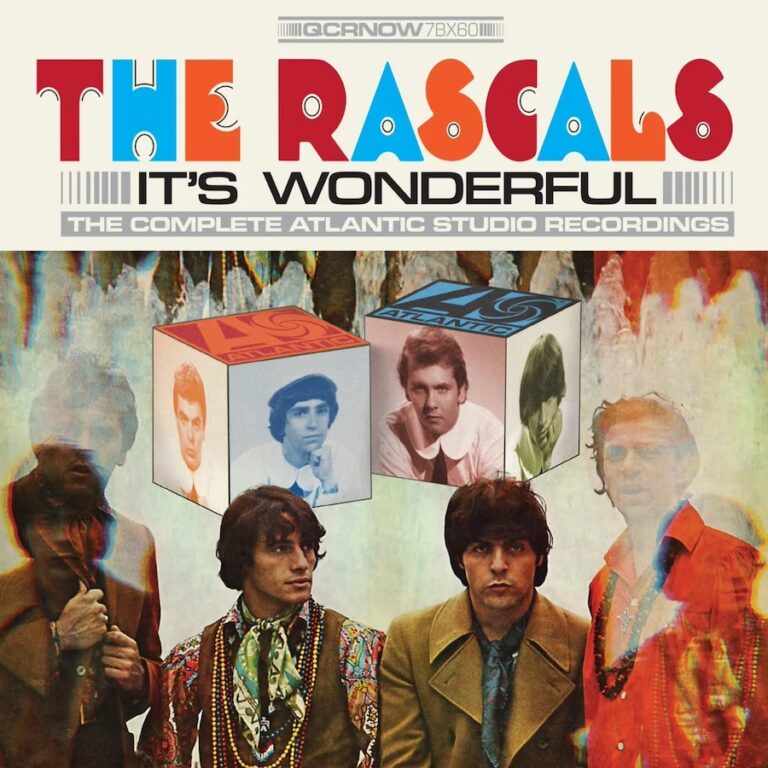An Exhaustive Rascals Box Set
Stevie Van Zandt heaped a ton of praise on the Rascals when he inducted them into the Rock & Roll Hall of Fame in 1997. If you think he was being hyperbolic, you probably haven’t heard the group, which likely means you weren’t around in the mid and late 1960s. That’s when this quartet’s work aired regularly on AM radio and delivered some of that medium’s brightest moments.
They first topped the charts in the spring of 1966 with the high-octane “Good Lovin’” and returned to the No. 1 spot twice more with 1967’s sublime “Groovin’” and 1968’s “People Got to Be Free.” Their numerous other essential Top 20 hits include “You Better Run,” “I’ve Been Lonely Too Long,” “A Girl Like You,” “How Can I Be Sure,” “It’s Wonderful,” and “A Beautiful Morning.”
The New Jersey-based band, initially known as the Young Rascals, first attracted attention for their musicianship, vocal work, and covers-heavy R&B/soul-flavored sets at a club in Long Island, New York’s Westhampton. Their debut album, 1966’s The Young Rascals, reflects this period with fine versions of hits such as the Beau Brummels’ “Just a Little,” Bob Dylan’s “Like a Rolling Stone,” and Wilson Pickett’s “Mustang Sally” and “In the Midnight Hour.”
But like such contemporaries as a certain quartet from Liverpool, Rascals keyboardist Felix Cavaliere, percussionist Eddie Brigati, drummer Dino Danelli, and guitarist Gene Cornish evolved and matured rapidly. Original material, mostly by Cavaliere and Brigati, the group’s primary lead vocalists, began to dominate their albums, and they started to incorporate elements of jazz, rock, psychedelia, and more. The result was some of the finest popular music of its time.
If you agree with that assessment, you’re probably a serious fan, in which case it’s time to trash your copy of the Rascals’ two-disc Anthology, which delivered a mere 35 tracks, or even Rhino Handmade’s six-CD collection of the group’s Atlantic recordings, which was called All I Really Need (after a line from “Good Lovin’”). What you really need is the gargantuan new It’s Wonderful: The Complete Atlantic Studio Recordings.
Like the Rhino box, this one collects the group’s LPs for Atlantic, the label that between 1965 and 1971 issued all their hit singles and most important long players, but the new anthology, which contains 152 freshly remastered tracks and all the original album art, goes further. With a playing time of more than eight and a half hours, it makes room for stereo and mono versions of the first four LPs plus single edits, alternate takes, and foreign-language versions. Fourteen of the tracks are previously unissued, and the box comes with a well-illustrated 60-page booklet that features an appreciation by compiler Alec Palao, a copious band history by music writer Ritchie Unterberger, and detailed discographic information.
Highlights abound in the set, which makes clear that there was much more to the Rascals than their well-known hits and other radio favorites. Listen, for example, to “Baby, Let’s Wait,” a seductive ballad from the first LP; Cornish’s lilting “I Don’t Love You Anymore,”; “It’s Love,” which features jazz flutist Hubert Laws; the beautifully produced “Easy Rollin’,” which sounds like a perfect companion to “Groovin’”; and the funky “I’d Like to Take You Home,” which seems reminiscent of Smiley Smile/Wild Honey–era Beach Boys.
This box’s title, which shares the name of a 1967 hit, accurately sums up its contents: it’s wonderful.
Previously Unheard Johnny Cash Originals
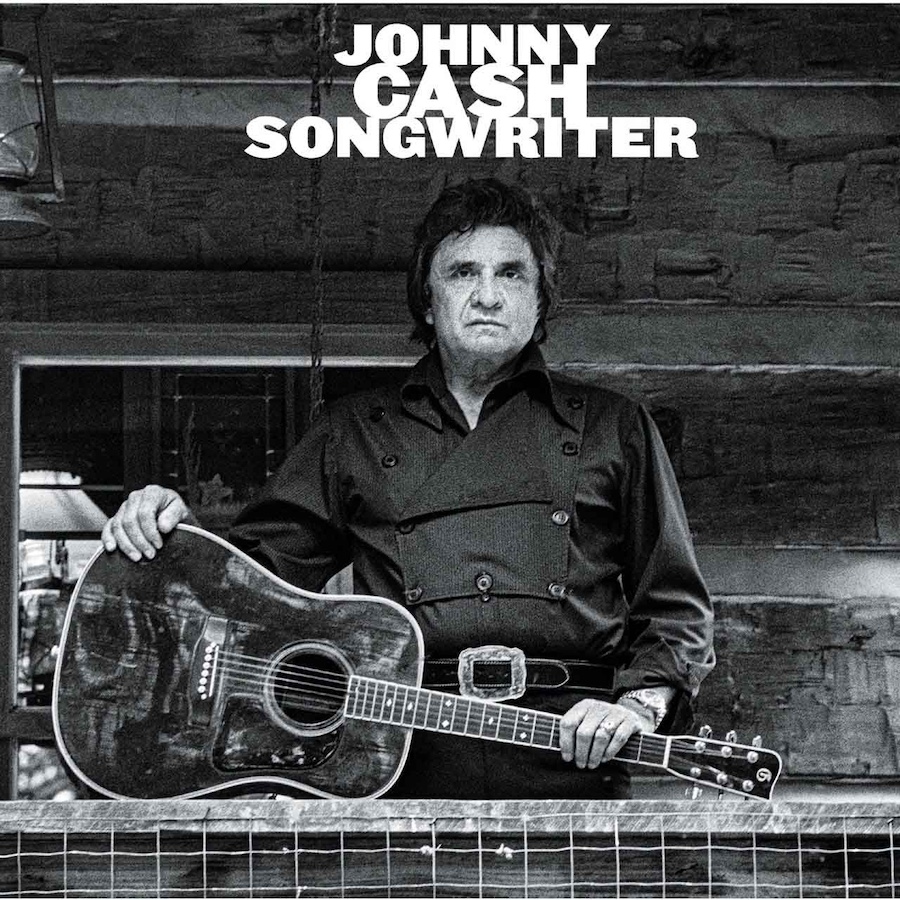
Johnny Cash’s outsized reputation as a performer makes it easy to forget that he was also an accomplished songwriter. He authored (or in a few cases co-authored) nearly half the numbers on the 75-track The Essential Johnny Cash 1955–1983, for example, including “I Walk the Line,” a Top 20 pop hit in 1956 that also reached No. 1 on country charts. Among his other original creations are such well-known tunes as “Hey, Porter,” “Cry, Cry, Cry,” “Folsom Prison Blues,” and “Don’t Take Your Guns to Town,” to name a few.
Cash’s own compositions are the focus of the new Songwriter, which resulted after his son, John Carter Cash, discovered recordings of 11 self-penned numbers that his dad had made in 1993 but never released. The younger Cash stripped out everything but his father’s vocals and acoustic guitar, and then invited several musicians to embellish various tracks. Among the contributors are Vince Gill, who adds vocals on one song, and guitarists Marty Stuart and the Black Keys’ Dan Auerbach.
The album incorporates a few clunkers, such as the overblown “Hello Out There,” but it includes more winners than losers. One standout is “I Love You Tonight,” a touching – and lilting – valentine to Cash’s wife, June Carter Cash. Another is “She Sang Sweet Baby James,” about a young woman who lulls her baby to sleep by singing James Taylor’s song.
But the best track might be “Well, Alright,” an upbeat, lighthearted ditty that reminds us Cash wasn’t always the serious Man in Black. (This is, after all, the guy whose biggest hit was Shel Silverstein’s comical novelty number, “A Boy Named Sue.”). The song, which tells of a romance that started in a laundromat, employs lots of deft wordplay and is bound to leave you smiling.
Nektar’s ‘Recycled’ Gets Recycled – and Expanded
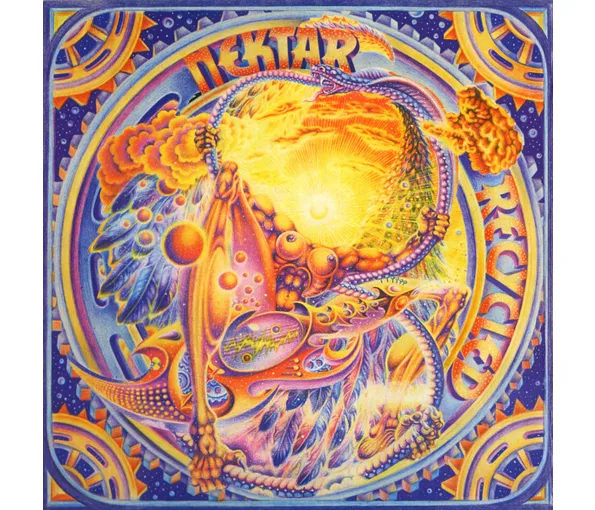
Last year witnessed the release of an expanded edition of Nektar’s best-known album, 1973’s Remember the Future. Now comes a similarly enhanced version of Recycled, the English progressive-rock group’s fourth LP, which it unveiled in 1976. As it turned out, it was the last album to be composed by all the group’s original members.
The reissue includes two CDs featuring remastered copies of the original LP and an alternate 1975 mix, plus single versions of two of the album’s tracks. An additional three discs serve up a pair of excellent concerts, one from 1975 in Long Island, New York, and one from 1976 in Toronto; both are previously unreleased and draw material from earlier albums as well as Recycled. An illustrated 40-page booklet includes lyrics; notes by Mark Powell, this edition’s producer; and reminiscences by Derek “Mo” Moore and Mick Brockett, the two surviving members of the original group. (Brockett was considered an integral part of Nektar, though his role was not to make music but rather to create light shows at its concerts.)
Recycled, which makes extensive use of a chorale and guest Larry Fast’s synthesizers, is not quite as musically satisfying as Remember the Future and its lyrics are just as abstruse. One suspects that some listeners will find the record bloated, pretentious, and dated. Yours truly is not in that camp regarding the lion’s share of the contents, however. Its shortcomings notwithstanding, Recycled flows well and delivers quite a few sonic thrills. If you’re a fan of prog-rock outfits such as Genesis, ELP, and Renaissance, you just might love this album.
Also Noteworthy
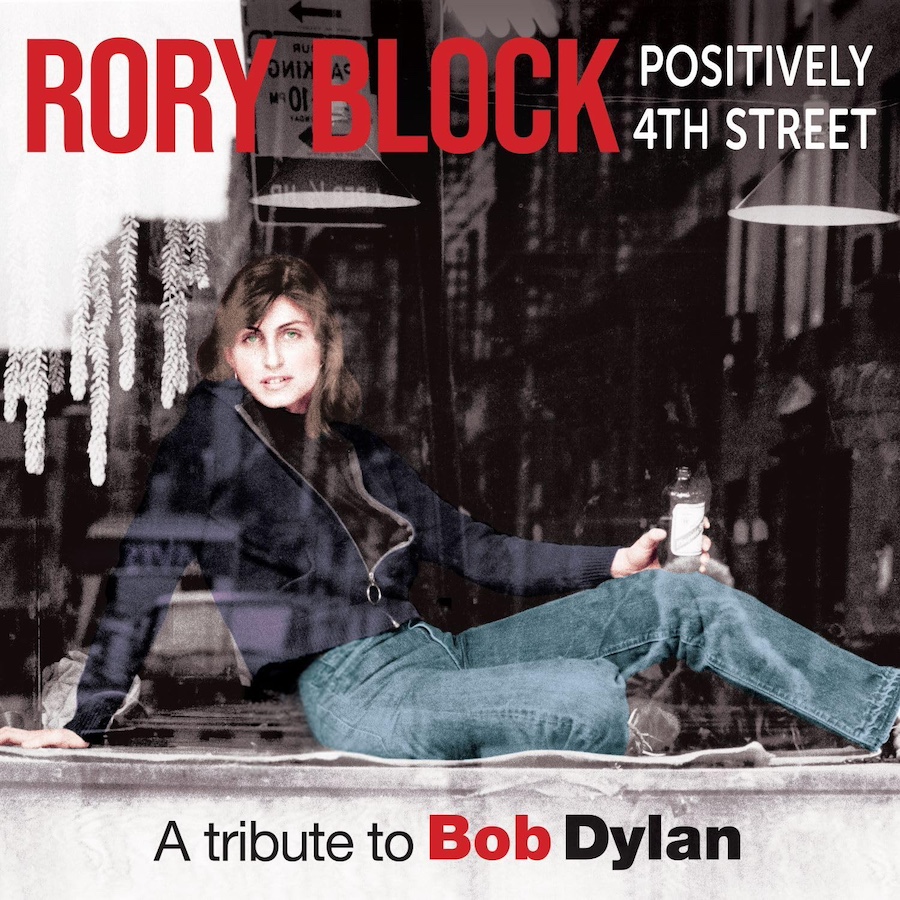
Rory Block, Positively 4th Street: A Tribute to Bob Dylan. Rory Block has long been known primarily as a blues singer and guitarist, but she grew up in Greenwich Village in the 1960s, when a folk revival was in full bloom, and absorbed its influences. Moreover, she has never allowed herself to be confined by one genre; she even flirted with disco during the 1970s. Here, she turns her attention to Bob Dylan’s songbook, delivering nine fine covers that capture the spirit of the originals while adding something new.
The program features several of Dylan’s best-known 1960s classics – “Like a Rolling Stone,” “Mr. Tambourine Man,” “Positively 4th Street,” and “A Hard Rain’s A-Gonna Fall” – but Block also makes room for deep cuts and recent material. She even tackles the epic “Murder Most Foul,” from Dylan’s 2020 album Rough and Rowdy Ways, offering a powerfully sung and played rendition that runs nearly four minutes longer than the songwriter’s own nearly 17-minute version.
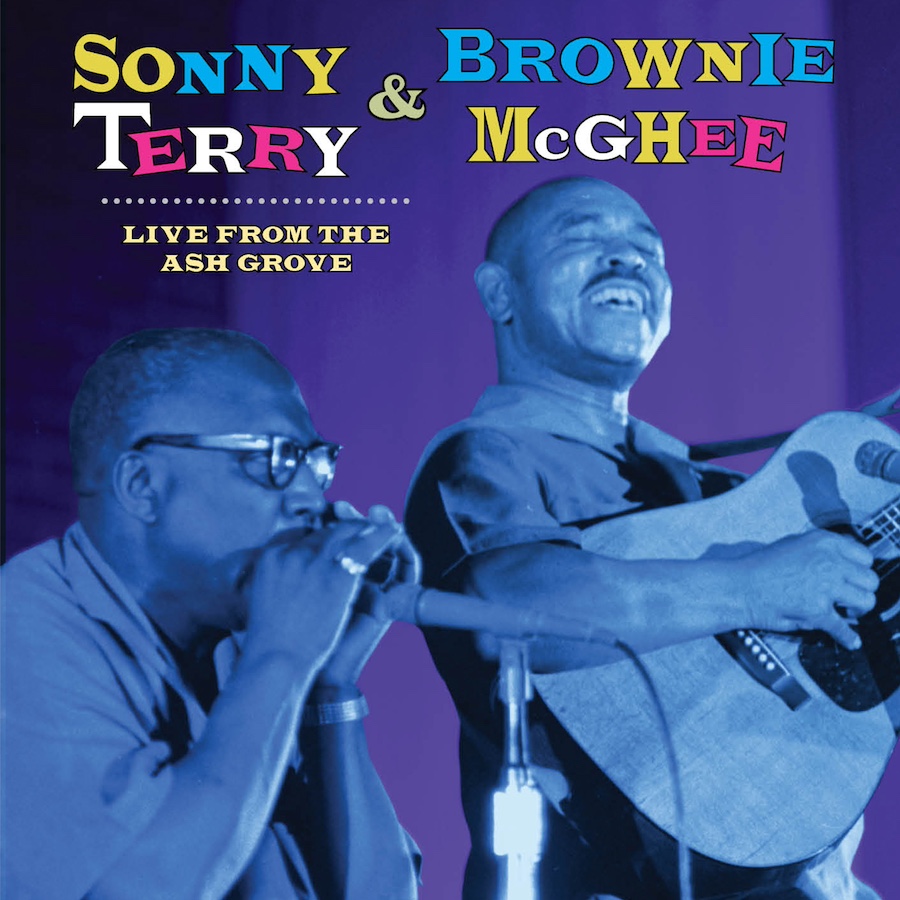
Sonny Terry & Brownie McGhee, Live from the Ash Grove. The four-decade musical partnership of folk and Piedmont blues masters Sonny Terry and Brownie McGhee was a rocky one. (According to this album’s liner notes, McGhee said he would attend Terry’s 1986 funeral only to “make sure that he’s dead.”) No acrimony is detectable in this previously unreleased live set, however; on the contrary, the pair seem perfectly in sync as they run through some of their best material at Los Angeles’s Ash Grove club.
The well-recorded, high-energy program includes eight songs from a 1973 concert and two numbers from 1965. Self-penned compositions predominate but the set also showcases such standards as Richard Jones’s “Trouble in Mind” and the traditional “Midnight Special.”
Jeff Burger’s website, byjeffburger.com, contains five decades’ worth of music reviews, interviews, and commentary. His books include Dylan on Dylan: Interviews and Encounters, Lennon on Lennon: Conversations with John Lennon, Leonard Cohen on Leonard Cohen: Interviews and Encounters, and Springsteen on Springsteen: Interviews, Speeches, and Encounters.


